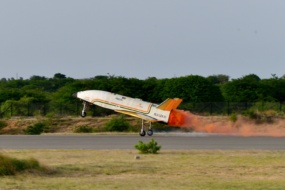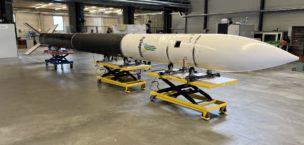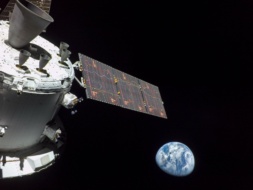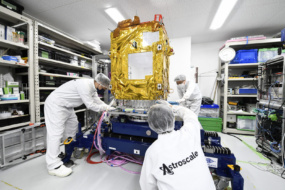Ariane 5 bid farewell today as it launched into the night sky for the very last time.
The hardest goodbyes: After 25 years, 116 launches, and 82 consecutive flights without a full failure, ESA is retiring its workhorse rocket. Its final flight carried France’s Syracuse 4B satellite, which will provide army comms, and Germany’s Heinrich Hertz satellite, which will test new communications tech.
Ariane 5’s retirement marks the end of an era that transformed Europe into a reliable gateway to space. The rocket will likely be best remembered for chauffeuring some of human’s most important scientific instruments into orbit, including:
- JUICE Jovian explorer in 2023
- James Webb Space Telescope in 2021
- BepiColombo Mercury probe in 2018
- Herschel Space Observatory in 2009
- Planck space observatory in 2009
- Rosetta comet orbiter/lander in 2004
Next of kin: Europe will now face a gap in launch capability as the Ariane 6 replacement rocket, which was supposed to be ready before Ariane 5’s retirement, is unlikely to fly until 2024.
The launch capacity issue is further compounded by persistent problems encountered by the Vega C rocket, an ESA platform that suffered a mid-flight failure in December. Plus, Russia’s invasion of Ukraine and the resulting sanctions forced Arianespace to discontinue its use of the Soyuz rocket.
The bottom line: With a significant void in launch capacity, European satellite operators will need to look at the limited supply overseas to meet their growing payload demand.




